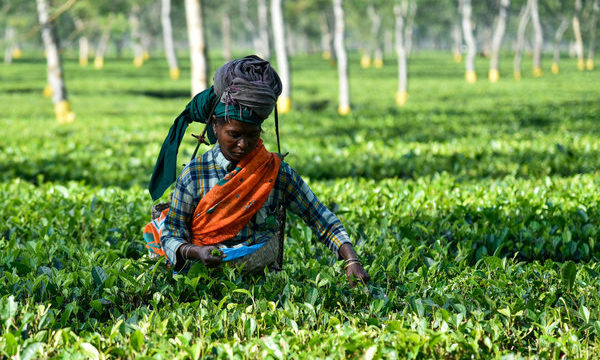
CABI has facilitated a webinar series to help national plant protection organizations (NPPOs) with the identifying, assessing, and managing the pest risk associated with the international movement of seeds in the Asia and Pacific region.
Scientists from CABI in India and UK presented four webinars to assist the NPPOs implement the International Standards for Phytosanitary (ISPM) 38 International Movement of Seeds directive and help ensure greater food safety and security.
The initiative was organized under the Food and Agriculture Organization (FAO)-funded project entitled ‘Supporting country partners in enhancing crop productivity through improved use of quality seeds and trade in Asia’ and is also mindful of the threats posed by crop pests to yields, biodiversity and international trade.
Understanding, implementation, and enforcement of ISPM 38
Ultimately, the aim of the webinar series was to enhance the understanding, implementation, and enforcement of ISPM 38 among relevant stakeholders, including government officials, phytosanitary inspectors, agricultural producers, and seed traders in the Asia and Pacific region.
Vinod Pandit, Regional Director, CABI South Asia, said, “Harmonizing international phytosanitary measures may help preserve biodiversity by increasing the potential for exchanging healthy seeds (free from pests)”.
Manju Thakur, Crop Health Advisor at CABI, said, “Despite the availability of the International Standards of Phytosanitary measures (ISPMs), different approaches to implementation by different countries are observed. The differences and lack of harmonization of regulatory frameworks in the different countries is a significant impediment to the international movement of plants and plant products, including seeds.
“Hence, strengthening capacity in implementing ISPM 38 is essential for facilitating trade in seeds, ensuring effective pest management, and safeguarding global plant health.”
Kritika Khanna, Project Development and Programme Communications Manager, said, “This webinar series represents an important step in fostering a shared understanding of ISPM 38 across the key stakeholders in the Asia and Pacific region. By providing practical guidance and resources, we are empowering stakeholders in the region to understand and collaborate on phytosanitary measures, ultimately strengthening regional seed trade and contributing to improved global plant health.”
Information and resources for Pest Risk Analysis
The first webinar included two presentations. The first was an introduction to ISPM 38 by Dr Rose Souza, of the International Seed Federation, and the second was a presentation on information and resources for Pest Risk Analysis (PRA) for seed speakers by Lucinda Charles, CABI’s Content Manager for the CABI Compendium.
In the second webinar Dr Souza introduced the principles of PRA and its application to the seed trade. This included ways to assess phytosanitary risks associated with seed-borne pests. It further explored risk management strategies for minimizing the spread of pests through seed movement and the importance of creating pest lists.
The third webinar focused on how to create a pest list for seeds – including using CABI’s Horizon Scanning Tool to do so.
The fourth webinar was an opportunity to show example case studies from Philippines and India including collaborative initiatives and partnerships for strengthening phytosanitary measures in seed trade.
It also looked and the exchange of best practices, lessons learned, and challenges faced in regulating seed movement at the international level.
The recordings of the webinars could be found here.
Quality of the seed is a key determinant of production
In the 2020 FAO publication ‘Status of seed legislation and policies in the Asia-Pacific region’ it is highlighted that, “The vast majority of the world’s food crops are annuals that are grown from seed sown at the start of each production season. The quality of that seed is a key determinant of production.”
It goes on to say that “farmers cannot easily observe the quality or identity of seed at the point of sale, which creates a risk on the part of the farmer. With the development of the commercial seed trade and the increasing number of varieties during the 20th century it became important to reduce this risk.
“This led to the formulation of laws and regulations intended to protect farmers and increase agricultural productivity through the adoption of modern varieties.”
Additional information
Main image: ISPM 38 is essential for facilitating trade in seeds, ensuring effective pest management, and safeguarding global plant health (Credit: Pixabay).
Related News & Blogs
CABI scientist defends PhD thesis on risks of pest and disease movement via plant and seed exchanges
CABI scientist Dr Iva Franić has successfully defended her PhD thesis looking at the risks of pest and disease movement via plant and seed exchanges. Dr Franić, co-supervised by Dr René Eschen, Research Scientist, Ecosystems Management, and Risk Analys…
30 March 2020



